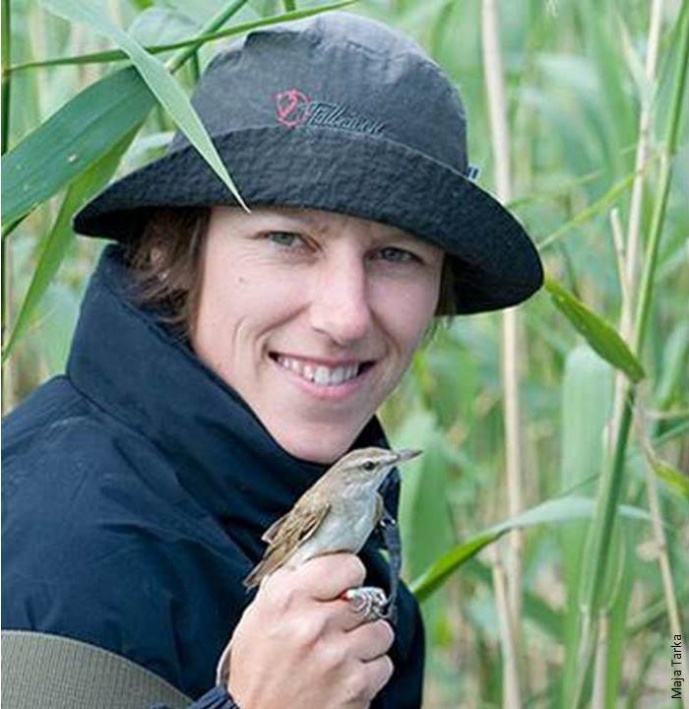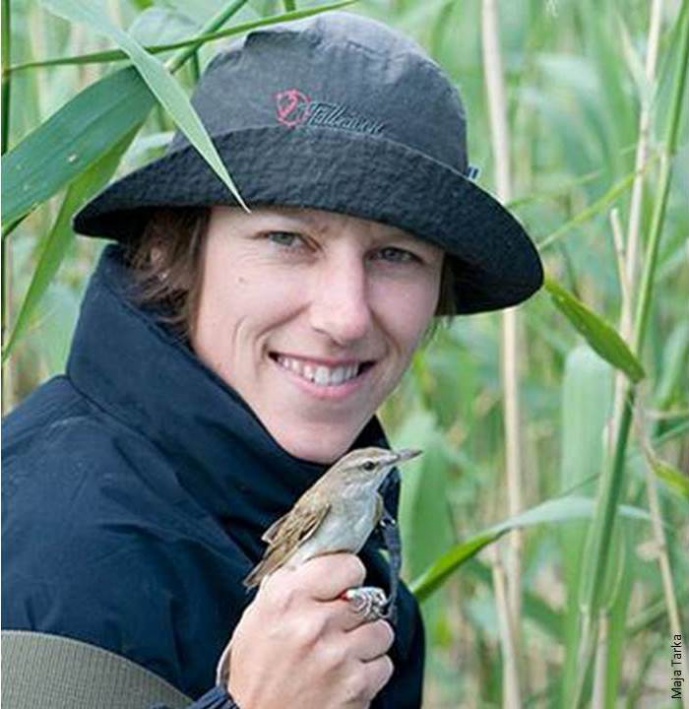Maja Tarka
Post-Doc Researcher
I am an evolutionary ecologist studying the genetic architecture and evolutionary dynamics of wild animal populations. I am interested in a broad range of questions spanning how natural and sexual selection shapes phenotypes in wild populations, why some populations are more evolvable than others, how the genetic architecture of traits constrain or facilitate evolution and how adaptation translates into speciation. I also have a large interest in the evolution of animal cognition. I address these questions using quantitative genetics, QTL-mapping, genomics and experimental approaches. The traits I study cover morphology, behaviour, life-history and fitness.
I finished my PhD in animal ecology at Lund University (Sweden) titled “Evolutionary dynamics of migration and breeding in wild birds: genetic architecture, sexual conflicts and evolutionary constraints”. There I studied a long-term monitored population of great reed warblers Acrocephalus arundinacues with a known pedigree. I investigated topics such as migration routes and strategies (using geolocator tracking), evolutionary constrains, breeding ecology, microevolution, intralocus sexual conflicts and genetic architecture of complex traits. I am still actively working with the great reed warbler project, and currently I am investigating phenology of these birds.
In 2012, I started a postdoc at CIBIO-InBIO in Porto (Portugal) with Dr. Martim Melo as host. Here I am investigating the history of a recent radiation event of Nesospiza finches in the Tristan da Cunha archipelago. I am using different genomic approaches to elucidate the speciation events on these isolated islands and investigate the role of gene flow in adaptation and speciation. In this project we are using several different genomic approaches using de novo genome assembly, RAD-sequencing and transcriptome data.

